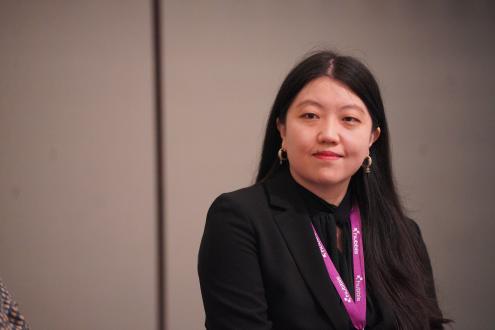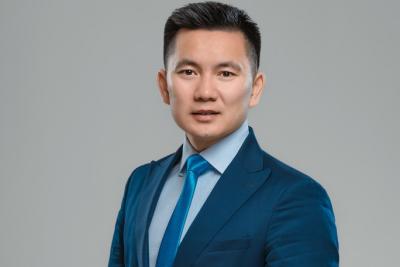GAM Investments’ Wendy Chen Highlights the Need to Dramatically Re-Focus China Portfolios

Nov 9, 2022
China is not an easy market for external investors to get right, let’s face it. And sometimes, investments can be derailed by totally unforeseen short-term policy vacillations and regulatory shifts, as happened in second half of 2021. Armed with an excellent slide presentation, Wendy Chen, Senior Investment Analyst at GAM Investments in Hong Kong, offered delegates an insightful presentation on looking through these sudden changes to much longer-term themes for investors to consider in China, so that their choice of sectors and assets are aligned with the future, not the past, and not derailed by short-term actions from the state. Her key mission was to convey that what made investors money in the financial markets of China in the past two decades might not be what will make money in the future. China’s government is shifting long-term policy in face of economy transaction, focusing on key sectors such as technology, EVs, sustainable energy, and encouraging domestic consumption rather than a largely export-led economy as in the past. We have summarised some of her valuable insights in this short report.
“China has experienced unprecedented growth for the past several decades and is poised to exceed that of US in the coming years,” she said, opening her talk. “However, this market has become a little bit more controversial over last year, as multiple rounds of disruptive forces reshuffled the investment landscape, making it increasingly difficult to navigate, even for the most seasoned investor.”
She explained that regulation is a key issue that has surfaced most visibly and most disruptively in the past 12 to 18 months, noting that 2H2021 marked a notable regulation tightening cycle.“The changes were unprecedented in terms of scale as well as intensity, with some notable events such as the crackdown on the education sector, as well as overall tightening towards the Chinese companies to finance in the global arena,” she reported. “This tightening cycle spooked many international investors, leading to significant outflows and subsequent underweight of the market for global fund managers.”
However, she noted that some of the capital market related policy changes had been reversed this year, since Vice Premier Liu He gave his speech to address the capital market concerns in March. The result, she said, was to help China shine again relative to global markets suffering inflation and rising rates and recession fears. “We believe that you can still generate a lot of alpha in China when you play the time right.” she stated.
She also pointed to the forthcoming 20th Party Congress of October 16, noting that historically in the 6 to 12 months after past five-year conferences, MSCI China tended to outperform the MSCI Global Index, as markets were swept higher by the combination of political stability, as well as visibility on the five-year roadmap ahead. “The conference is often seen as a trigger for the more benign policies to come, helping the Chinese equity market performance historically,” she said.
She observed that the two burning issues to resolve are Covid-Zero and the property sector. Covid policies that hampering the supply chain, impacting China’s ability to contribute to the global supply chain, and therefore having knock-on effects on consumption and export part of the GDP.
Property sector debt, deleveraging and weakness are now not only impacting the corporations, but increasingly the individual obligors, for example people boycotting their mortgage payments for unfinished projects, and that also means pressure on the banking system, as mortgage made the largest mass of personal loans. “Accordingly,” she said, “we believe that the pace of deleveraging in the property sector, which will be a process for decades to come, might moderate to curb cross-infections across the economic system.”
She posed the rhetorical question as to why China is doing all this, which appears like self-harm.
In her view, demographics have a lot to do with it, with the vast population that had been driving economic growth now ageing. Another mission is to improve the quality of growth, de-leveraging the vast property sector and focusing on sustainable and greener growth. Additionally, China is adjusting to the rise of what is becoming the world’s largest middle class at the same time as social media has become so widespread. And at the same time, there is the trend towards de-globalisation that had accelerated since the pandemic struck in 2020.
“So, how do investors actually reposition their China portfolios under the new norms, both in the short term and in the coming long term of the economic transaction?” she wondered. And Wendy answered that question by pointing to China’s significant progress in sectors with policy tailwind and played into the economic transaction, such as renewables (including solar power, where China is the world leader), EV technologies and the supply chain, and digital and AI technologies. For instance, on de-globalisation trend across the globe, she noted that China is shifting from an export-oriented economy towards “dual circulation”, i.e. more domestic consumption along with oversea demands, with the younger generations of Chinese consumers growing awareness of domestic brands, as well as consumption encouragement policies to follow.
China, she said, will as a result produce an increasingly high percentage of its economic activity through domestic consumption and activity, turning the page on the past, which was driven by external demand, and thereby harnessing the power of the world’s largest consumer market.
“That,” she concluded, “is the new landscape for China in the next 50 years, and that has resulted in a lot of re-thinking by fund investors, as they increasingly see that what will make them money in the future is not what made them money in the past.”

Senior Investment Analyst at GAM Investments

More from Wendy Chen, GAM Investments
Latest Articles






